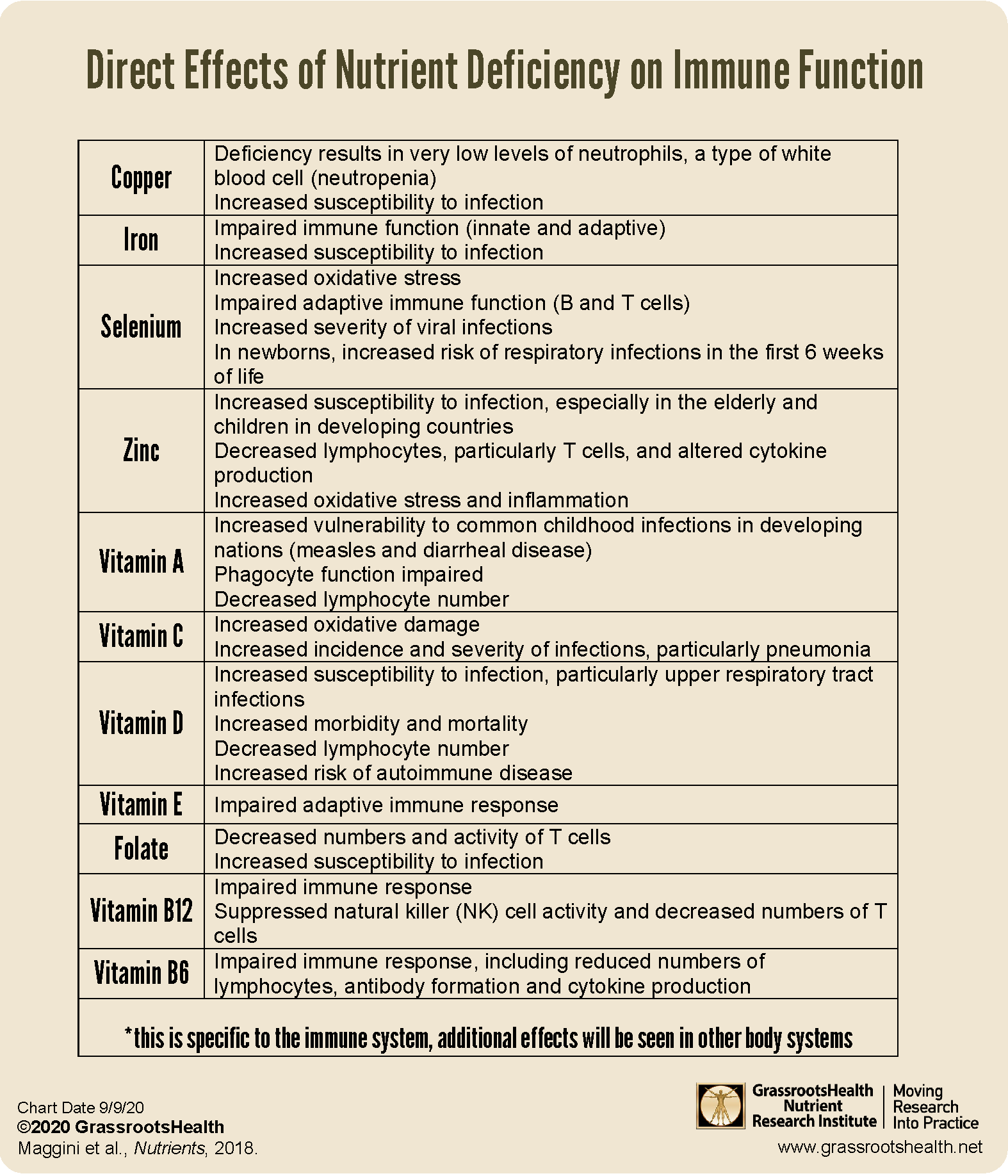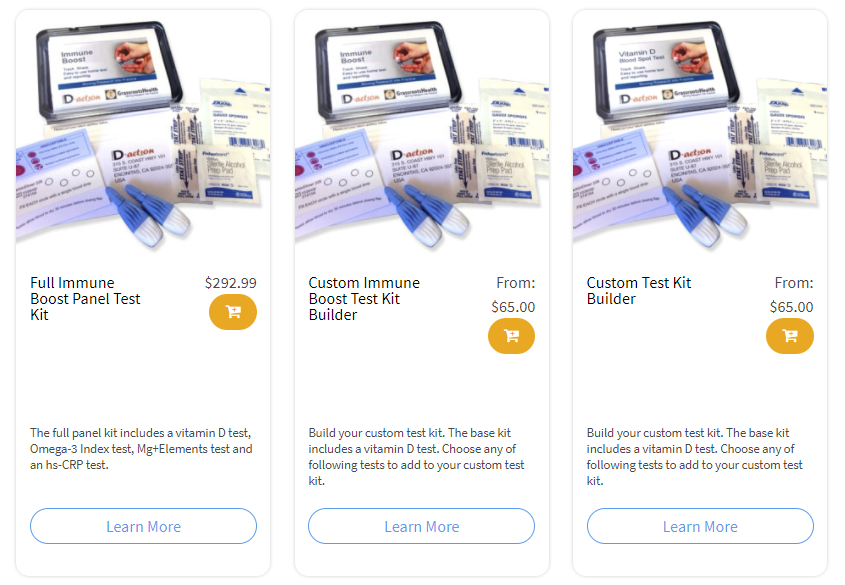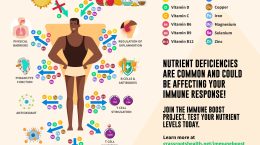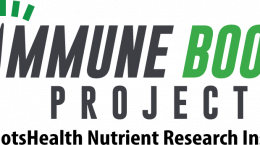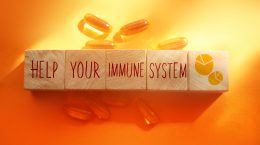Published on September 11, 2020
Unhealthy eating patterns with lack of physical activity has a cumulative effect on health and chronic disease. Your house of health is built on four main pillars – diet, lifestyle (e.g. sleep and exercise patterns), intrinsic factors (e.g. genetics) and environmental factors (e.g. toxins) all play a role. Poor nutrition has numerous harmful effects including nutrient deficiencies, excess weight and obesity, heart disease and stroke, type 2 diabetes, cancer, deficits in brain function and many other chronic diseases.
We previously described how nutrients and other lifestyle factors contribute to a compromised immune system; here we will describe the effects of each nutrient on immune system function.
Your Health Is a House
 Sometimes a complex health concept is best explained through an analogy. You may already relate to “my body is a temple,” but to simplify it let’s think of the body as a house. And, rather than trying to visualize the foundation of the house, we will use a house on stilts so that we can better see it.
Sometimes a complex health concept is best explained through an analogy. You may already relate to “my body is a temple,” but to simplify it let’s think of the body as a house. And, rather than trying to visualize the foundation of the house, we will use a house on stilts so that we can better see it.
The complexities of the role nutrients play in immune function can be envisioned in the stilts of that house – what are they made of? How strong are they?
The Stilts
The stilts are the pillars that your house of health is built upon, and many are required to keep the house stable and healthy. The different stilts are different organs and metabolic pathways, the immune system for example, that keep the body functioning properly. Just as the strength of the stilts in the photo depends on the individual fibers that make up the wood, the strength of the stilts for your house of health depends on vitamins and minerals that act as cofactors for all of the processes in the body, including immune cell function.
What Happens When You Are Deficient In One or More Nutrients?
Being deficient in one or more nutrients weakens your stilts. Individual nutrient deficiencies have specific impacts on each stilt or body function and may impact other fibers in the stilt.
Nutrients interact with each other as well, so a deficiency in one nutrient may impact other nutrient levels. For example, a magnesium deficiency can impair the function of enzymes in the vitamin D system. Therefore, a magnesium deficiency could contribute to deficient vitamin D levels, even for those taking a vitamin D supplement.
The more deficiencies, the weaker each stilt becomes, allowing greater susceptibility to infection and disease – and the house falling. Providing your body with all the nutrients it needs is important for keeping your house of health supported.
Immune Effects of Individual Nutrient Deficiencies
The table below outlines direct effects of individual nutrient deficiencies on immune function.
Nutrients Support Healthy Immune Function
We have previously shared about how Vitamin D is necessary for healthy immune function, especially in response to infection (such as COVID-19), and many other health outcomes. Other nutrients also work to support the immune response, such as vitamin C and zinc. One study on supplementation with vitamin D, magnesium and vitamin B12 resulted in improved outcomes for individuals with COVID-19. Importantly, a recent randomized controlled trial in patients hospitalized with COVID-19 found that vitamin D supplementation [in the form of 25(OH)D] reduced the risk of ICU admission by 96%! These are just a handful of the nutrients that have an effect on immune system function!
Avoid Deficiency – Enroll in the GrassrootsHealth Nutrient Research Immune Boost Project and Test Today
Do you know your own nutrient levels? Do you know your levels of inflammation? Could getting more of certain nutrients help to decrease your levels of inflammation, and improve your immune response? Find out by testing your vitamin D, omega-3s, magnesium and other essential elements (including copper and zinc), as well as your inflammation levels, with the new Immune Boost home test kit offered by GrassrootsHealth. Measuring levels is the only way to know if you are supporting your immune system and whether additional changes should be made, with supplementation, dietary changes, or both.
Enroll now with the Full Immune Boost Panel (which includes tests for vitamin D, Omega-3 Index, magnesium, zinc, selenium, copper, and hsCRP), and get 10% off when you use coupon code BoostTen at checkout.
What Does it Take YOU to Get Your D to 40 ng/ml (100 nmol/L)?
Did you know your health could be greatly affected by making sure you have a vitamin D level of at least 40 ng/ml (100 nmol/L)? Help us help you.
STEP 1 – Do you know what your vitamin D level is? If not, be sure to test today to find out.
STEP 2 – Determine your target level. Are you at your target level? Experts recommend a level of at least 40-60 ng/ml (100-150 nmol/L).
STEP 3 – Need to boost your level? Use the D*calculator to see how much vitamin D it may take to reach your target. Opt for the Loading Dose for a quicker boost.
STEP 4 – Optimize how your body absorbs and utilizes vitamin D with co-nutrients and these simple steps.
STEP 5 – Re-Test! This is an important step to make sure you have reached your target level, and to ensure you are not taking too much! Re-testing after 3-4 months is recommended.
STEP 6 – Adjust, Repeat…
Give your immune system the nutrients it needs to support a healthy you and protect yourself from unnecessary diseases, especially COVID-19.
NEWS ALERT
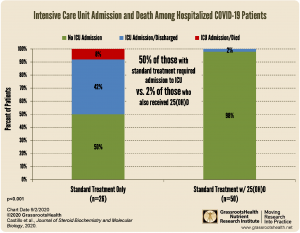 The first Randomized Controlled Trial on vitamin D and COVID-19 has shown a 96% lower risk of ICU admission for those receiving vitamin D (as 25(OH)D to quickly boost vitamin D blood levels) along with the standard treatment, compared to those receiving standard treatment alone.
The first Randomized Controlled Trial on vitamin D and COVID-19 has shown a 96% lower risk of ICU admission for those receiving vitamin D (as 25(OH)D to quickly boost vitamin D blood levels) along with the standard treatment, compared to those receiving standard treatment alone.
These results support many previous observational studies showing a relationship between vitamin D levels and intake and COVID-19 severity.
Review the Latest Nutrient Research for COVID-19
GrassrootsHealth Nutrient Research Institute has launched the new Immune Boost project with the use of our myData-myAnswers nutrient health system that nearly 15,000 people are already using for their health. Specific markers that influence immune health are suggested for testing as part of this project including:
- Vitamin D
- Omega-3 Index
- Essential elements magnesium, selenium, and zinc
- hsCRP
Our goal is to demonstrate how one can use the Nutrient Research Model established by Dr. Robert Heaney to show the effect of vitamin D serum levels of at least 40 ng/ml (100 nmol/L) on risk reduction for all ethnicities in the population. Status and intake of other nutrients will also be analyzed for any type of relationship to immune status and symptom severity. Join the project today!
Please let us know if you’re interested in helping sponsor this project.
CLICK HERE for updates and new information about the project.
Through GrassrootsHealth Nutrient Research Institute, you can also test your essential elements magnesium, copper, zinc and selenium, toxins such as lead, mercury and cadmium, as well as your omega-3 levels, inflammation levels and thyroid stimulating hormone (TSH) level. Find out your levels today! Log on to the test selection page (click the link below) to get your tests and see for yourself if your levels can be improved.
Make sure you track your results before and after, about every 6 months!
Click Here to Access the Test Page
How can I track my nutrient intake and levels over time?
To help you track your supplement use and nutrient levels, GrassrootsHealth has created the Personal Health Nutrient Decision System called
For each specific supplement, you can track what days you take it, how much, and many other details. This will help you know your true supplemental intake and what patterns of use work for you to reach and maintain optimum nutrient levels. Check it out today!


